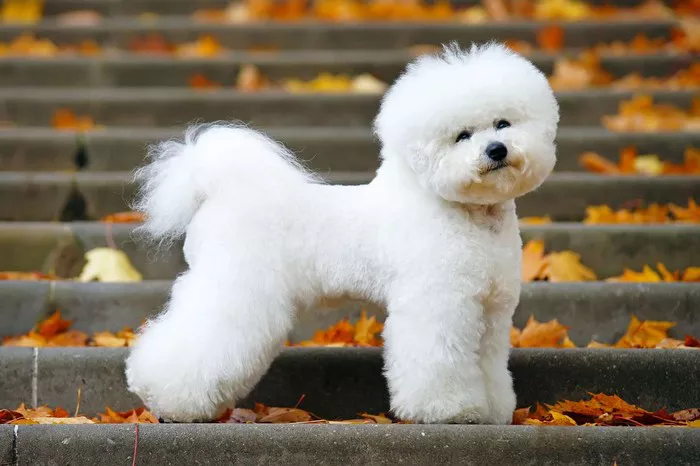For prospective pet owners considering the adoption of a Bichon Poodle, commonly referred to as a Bichonpoo, understanding their barking tendencies is essential. Bichon Poodles are adored for their affectionate nature and intelligence, but potential excessive barking can be a concern for some households. In this comprehensive guide, we delve into the barking tendencies of Bichon Poodles, factors influencing their barking behavior, training strategies, and other considerations to help you make an informed decision.
Bichon Poodle Breed Characteristics
Bichon Poodles are a crossbreed between Bichon Frises and Poodles, inheriting traits from both parent breeds. They are known for their friendly and affectionate demeanor, playful personality, and intelligence. Bichonpoos typically form strong bonds with their owners and thrive on companionship and attention. Their trainability makes them well-suited for various living situations, from families to singles and seniors.
Barking Tendencies
When it comes to barking tendencies, Bichon Poodles can vary from individual to individual. While they are not typically considered excessive barkers, some Bichonpoos may exhibit more vocal behavior than others. Factors such as genetics, environment, socialization, and training play a significant role in determining a Bichonpoo’s barking habits.
Factors Influencing Barking Behavior
Several factors can influence the barking behavior of Bichon Poodles:
Socialization: Proper socialization from an early age can help Bichonpoos feel more comfortable and confident in various situations, reducing the likelihood of anxious or reactive barking.
Training: Consistent and positive reinforcement-based training can help shape desirable behaviors in Bichon Poodles, including appropriate barking behavior.
Exercise and Mental Stimulation: Boredom and pent-up energy can contribute to excessive barking in Bichonpoos. Providing regular exercise and mental stimulation can help alleviate boredom and reduce barking.
Training and Management
Effective training and management techniques are crucial for addressing barking behavior in Bichon Poodles:
Positive Reinforcement: Use positive reinforcement techniques, such as praise, treats, and rewards, to reinforce quiet behavior and discourage excessive barking.
Desensitization: Gradual exposure to triggers that elicit barking can help desensitize Bichonpoos and reduce their reactivity over time.
Redirecting Attention: Redirect your Bichonpoo’s attention to an alternative behavior, such as sitting or fetching, when they are tempted to bark unnecessarily.
Consistency and Patience: Consistent training and patience are key to modifying barking behavior in Bichon Poodles. Be patient and understanding as you work with your pet to achieve desired outcomes.
Other Considerations
When considering a Bichon Poodle as a pet, it’s essential to take into account other factors beyond barking behavior:
Grooming Needs: Bichonpoos require regular grooming to maintain their fluffy coats, including brushing, bathing, and occasional trimming.
Health Considerations: Stay informed about common health issues that may affect Bichonpoos, such as dental problems, skin allergies, and hip dysplasia.
Compatibility: Assess the compatibility of a Bichon Poodle with your lifestyle, living situation, and family dynamics. Consider their interactions with children, other pets, and visitors to your home.
Conclusion
Bichon Poodles can make wonderful companions for individuals and families alike, but understanding their barking tendencies and implementing effective training and management strategies is crucial. By considering factors such as socialization, training, exercise, and other considerations, prospective pet owners can make informed decisions about welcoming a Bichon Poodle into their home and providing them with a loving and enriching environment.
FAQs
1. Is a Bichon Poodle a good dog to have?
Bichon Poodles, also known as Bichonpoos, are popular companion dogs known for their affectionate nature and intelligence. They are generally considered excellent pets for families, singles, and seniors alike. Bichonpoos often inherit desirable traits from both parent breeds, including loyalty, adaptability, and a playful disposition. However, as with any dog, individual temperament can vary, so it’s essential to research and meet the specific dog before making a decision.
2. What is the personality of a Bichonpoo?
Bichonpoos typically exhibit a friendly, outgoing personality combined with intelligence and a willingness to please. They are known for their affectionate nature and enjoy being around people and other pets. Bichonpoos often inherit the playful and energetic traits of both parent breeds, making them delightful companions for families and individuals alike.
3. Are Bichons yappy?
Bichons, including Bichonpoos, can sometimes exhibit barking tendencies, particularly when they are bored, anxious, or seeking attention. However, proper training and socialization can help minimize excessive barking behavior in Bichons. Providing mental stimulation, regular exercise, and positive reinforcement training can also contribute to a well-behaved and content Bichonpoo.
4. What is the behavior of a Bichoodle?
Bichonpoos, like their parent breeds, are known for their friendly and affectionate behavior. They often form strong bonds with their owners and thrive on companionship and attention. Bichonpoos are typically playful and energetic, enjoying activities such as walks, playtime, and interactive games. They may also display a curious and inquisitive nature, exploring their surroundings with enthusiasm. With proper training, socialization, and care, Bichonpoos can be delightful, well-mannered companions for families and individuals alike.


